How Many Is Considered a Small Wedding? Expert Tips for Planning
Planning a wedding can be a daunting task, especially when it comes to deciding on the guest list. One of the key considerations is figuring out what counts as a small wedding. A small wedding typically includes 50 guests or less. This number allows you to enjoy an intimate ceremony and celebrate with those closest to you.
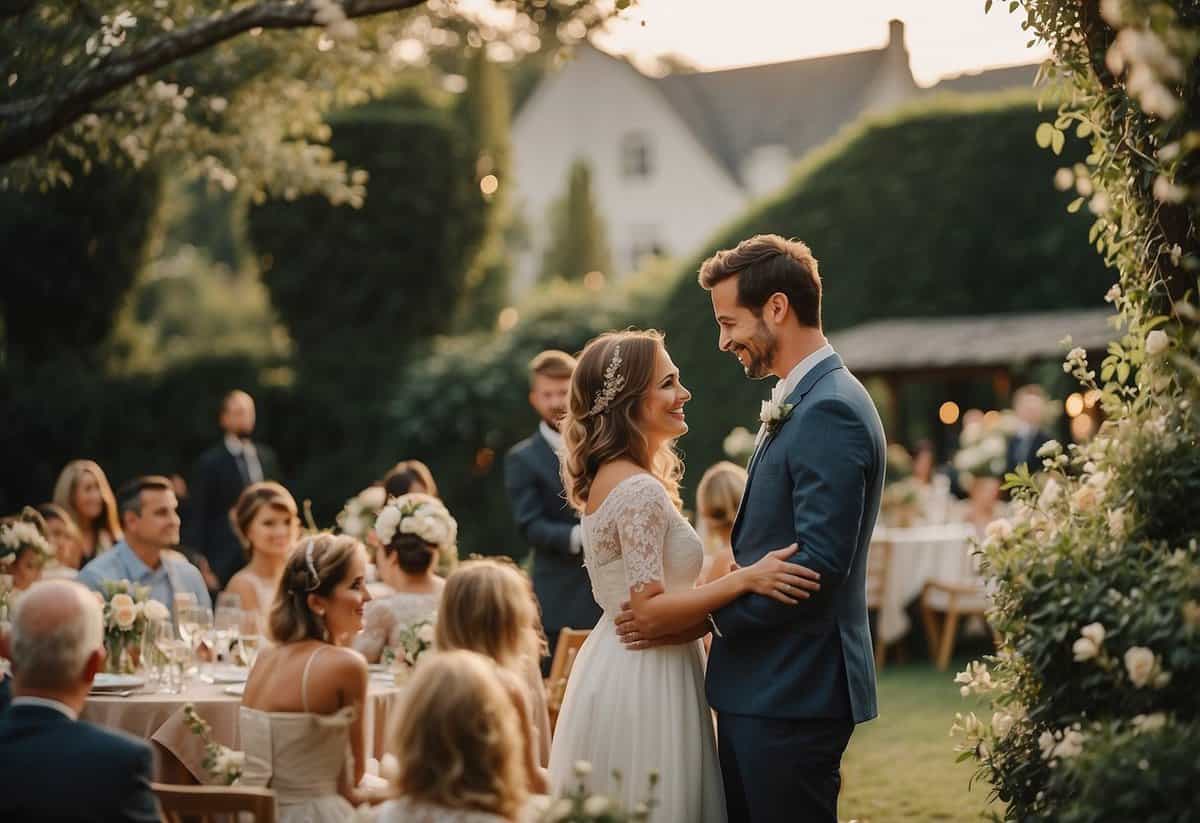
An intimate wedding, which often has between 50 and 75 guests, also fosters a cozy atmosphere. Celebrating with a smaller crowd can make your day feel more personal and special. Plus, it provides opportunities for more meaningful interactions with each guest.
When you choose to have a small wedding, you can be more creative and thoughtful with your plans. From personalized hand-written dinner menus to unique, individually boxed desserts, there are countless ways to make your celebration memorable. For more detailed information on guest counts, you might find this article on average wedding guest list sizes helpful.
Determining Your Wedding Size
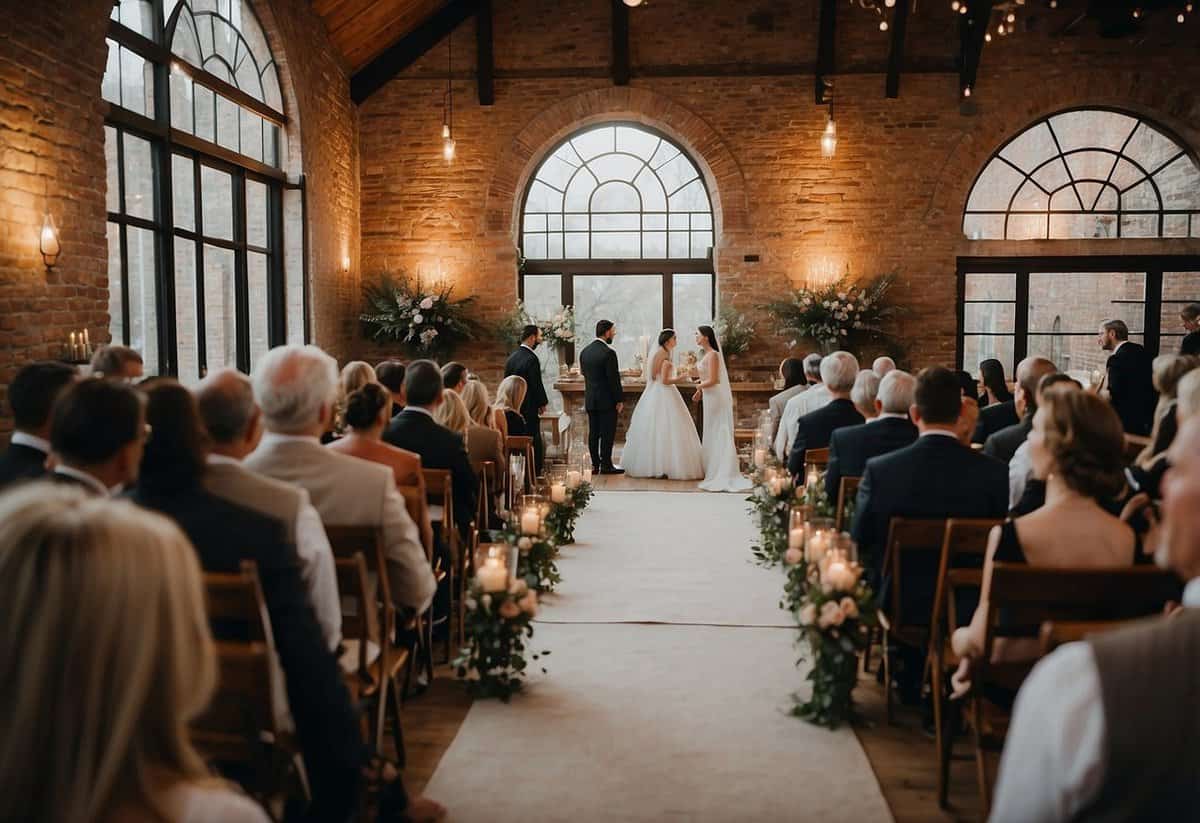
Deciding the number of guests you want at your wedding involves considering the type of celebration you envision and the venue where it will be held. Knowing what is typically defined as a small, medium, or large wedding can help guide your plans.
Understanding Guest Lists
A small wedding generally includes less than 50 guests, making it an intimate affair. This size allows you to invite close family and friends, creating a cozy and personal atmosphere. If you invite fewer than 50 people, you can spend more time with each guest and create a memorable experience for everyone.
Medium weddings usually have between 50 and 175 guests. This range can feel either large or small, depending on the exact number. For some, 150 guests might seem like a lot, while for others, it feels just right. Large weddings, with over 175 guests, can feel grand and celebratory, but also require more planning and budgeting.
The Impact of Venue Choice
The venue you choose significantly impacts your wedding size. Smaller venues can comfortably accommodate fewer guests, making them perfect for intimate weddings. A backyard or a small, charming hall can host your 50-person guest list with ease. This setting makes your big day feel close-knit and special.
Medium-sized venues, such as banquet halls or community centers, are ideal for weddings with around 100 to 150 guests. They provide ample space for dining, dancing, and mingling. Large venues, like grand ballrooms or outdoor spaces, can host more than 175 guests. These venues offer much flexibility in layout and decoration but often come at a higher cost.
Choosing the right venue ensures your guests feel comfortable and enhances the overall atmosphere of your celebration.
Budget Considerations for Small Weddings
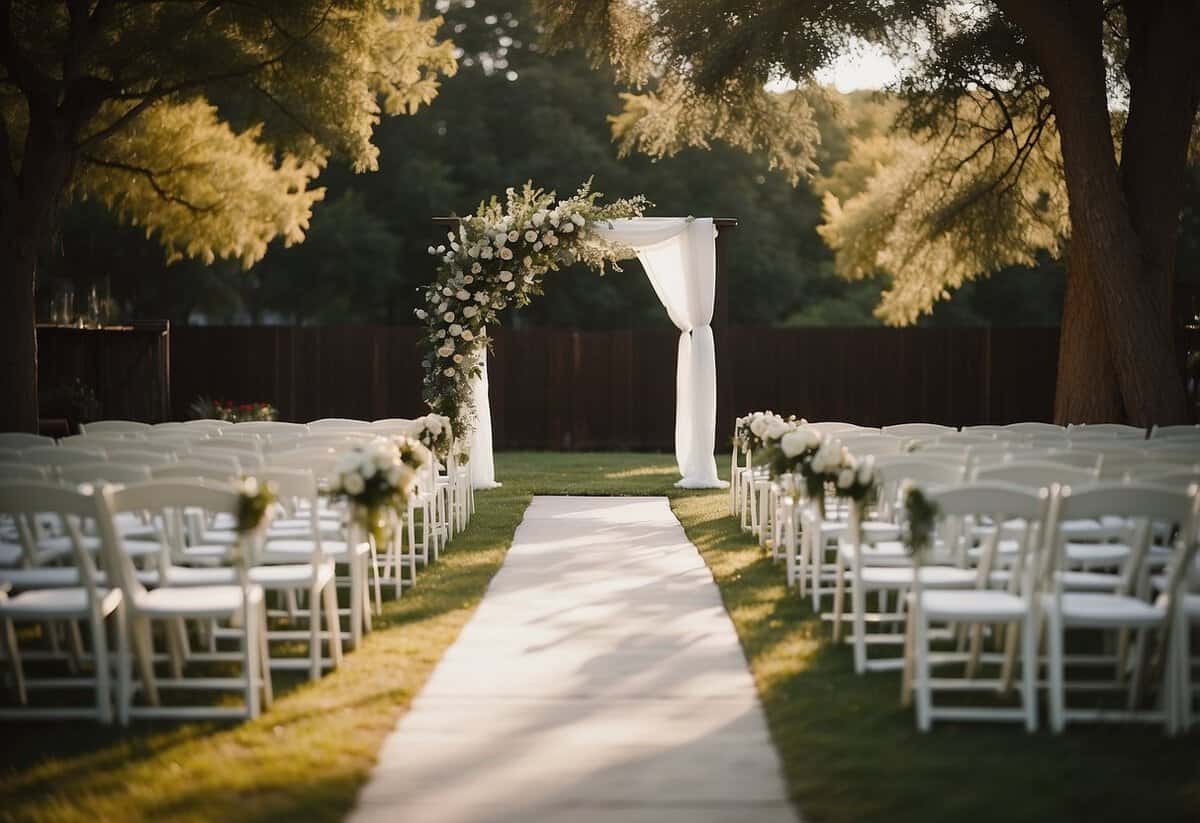
Planning a small wedding involves careful budgeting to ensure that your special day is memorable without overspending. Key points include evaluating your wedding expenses and strategically allocating funds to essential elements.
Evaluating Wedding Expenses
When planning a small wedding, the first step is to evaluate all potential expenses. Start by listing out main cost areas such as venue, catering, attire, photography, and decorations. With fewer guests, some costs might go down, but you should still keep an eye on each category to prevent unexpected expenses.
Comparing quotes from various vendors can help you find deals that fit your budget. Many vendors offer packages specifically for small weddings. Also, consider the benefits of a DIY approach for certain aspects like décor or favors, which can further reduce costs. Keeping a detailed expense tracker can help you stay on track.
Allocating Funds for Key Elements
Allocating your budget wisely is crucial for a small wedding. Prioritize the elements that matter most to you. If having a beautiful venue is important, allocate more funds there and cut back on less critical areas.
Here are some key areas to consider:
-
Venue: Choose a location that suits your number of guests and budget. Examples include a park, backyard, or small restaurant.
-
Catering: With fewer guests, gourmet options may become more affordable. Opt for a family-style meal or buffet.
-
Attire: Budget around 7% for attire, including the wedding dress, suit, shoes, and accessories.
-
Photography: Ensure to hire a good photographer, as these memories last a lifetime. You might find it worth spending a bit more here.
By planning and prioritizing, you can ensure that your small wedding is both beautiful and within your financial means.
Planning Details for Intimate Ceremonies
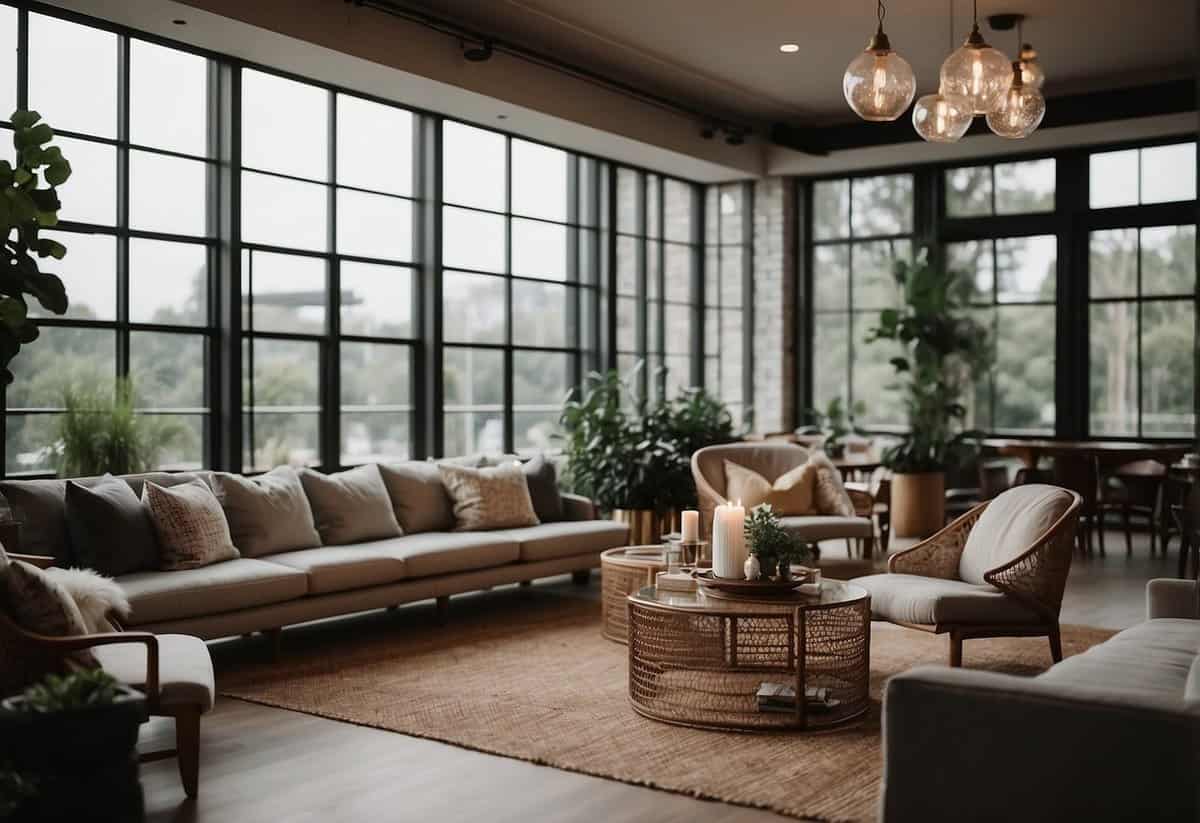
Planning an intimate wedding requires careful attention to detail to ensure that the event feels personal and special. From selecting vendors to creating a unique atmosphere, every element should contribute to the overall experience.
Selecting the Right Vendors
Choosing the right vendors is crucial for a small wedding. You often need vendors who understand the importance of personalization. Look for a wedding planner who has experience with smaller events. They can help you find vendors who specialize in intimate settings and know how to make a big impact with fewer resources.
Talk to florists who can create beautiful, but smaller, arrangements. Photographers should be skilled in capturing moments in a less crowded space. Confirm that caterers can handle small, yet detailed menus. Personal relationships with vendors help ensure they understand your vision and can tailor their services to your needs.
Creating a Personalized Experience
An intimate wedding offers a perfect opportunity to customize every detail to reflect your personality as a couple. Start with personalized invitations that set the tone. Consider unique venues like a family backyard or a favorite local spot. These settings can make your celebration feel more personal and meaningful.
Incorporate personal touches in the decor, such as photos of your journey together, custom-made centerpieces, or handwritten notes for each guest. This helps make everyone feel special and connected. Focus on quality over quantity in every aspect, from the food to the entertainment, ensuring that each detail adds to the experience without overwhelming your small group of guests.
Special Considerations for Unique Celebrations
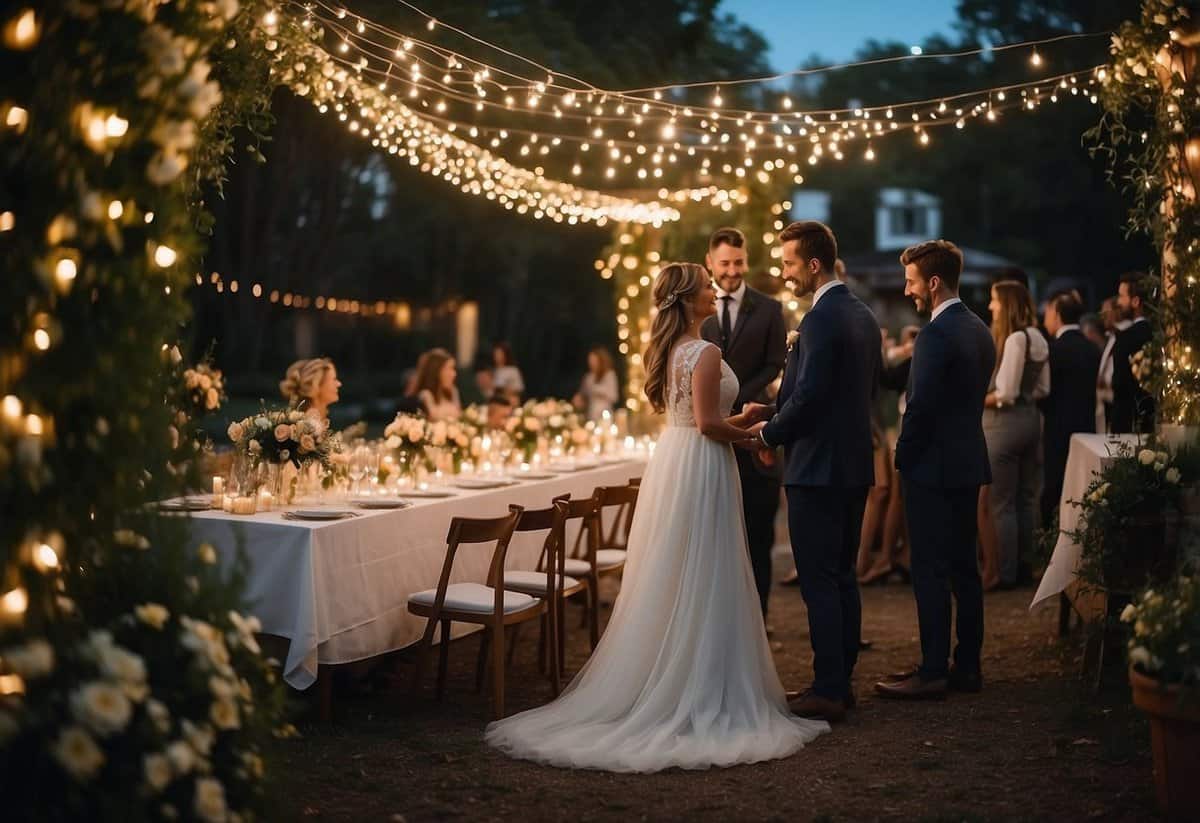
Unique wedding celebrations often include choosing unconventional venues or creating personalized ceremony elements. This kind of planning can make your wedding memorable and truly reflect your personalities.
Opting for a Destination or Elopement
Choosing a destination wedding or an elopement provides a unique and memorable backdrop for your big day. These options often mean fewer guests, which can make the event more intimate.
You might consider a tropical beach, a historic city, or a picturesque countryside location. The destination itself can add a magical touch, making your ceremony special and unforgettable.
Travel logistics are a key factor. Ensure that your chosen destination is accessible for you and your guests. It’s also important to research local marriage laws and requirements.
A benefit of elopement is its simplicity. You can focus on your ceremony without worrying about a large guest list or elaborate details. This can lead to a more personalized and stress-free experience.
Incorporating Traditions and Personal Vows
Including traditions in your wedding can add depth and meaning to the ceremony. Whether it’s a cultural tradition, a family custom, or a symbolically significant act, these elements can make your day feel more connected to your roots.
Personal vows are another powerful way to make your wedding unique. Writing your own vows allows you to express your love and commitment in your own words. This can be more meaningful than traditional vows.
When incorporating both traditions and personal elements, it’s important to balance them. Create a ceremony that feels true to you while honoring the traditions that are important to you and your families.
For example, you might include a traditional handfasting ritual along with personal vows. Or, choose to have a family member share a meaningful story or blessing during the ceremony.



